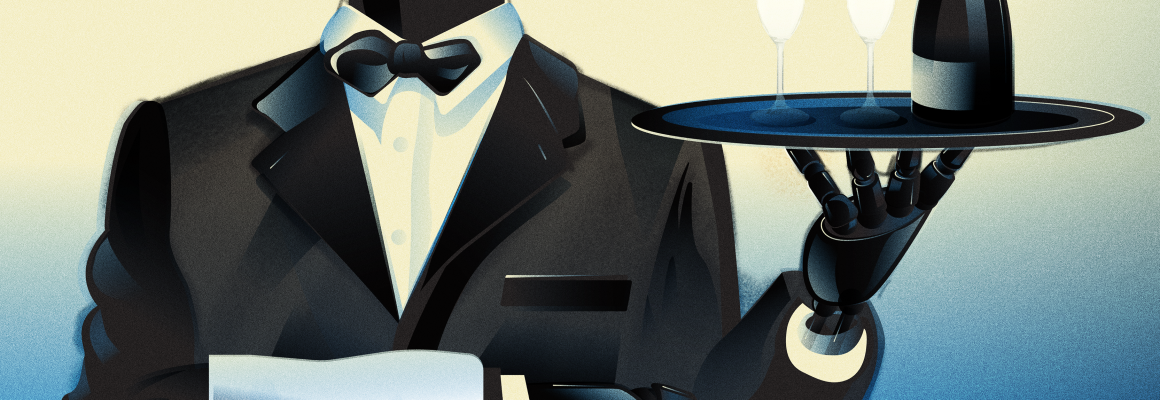BrainStation and BC Tech Council Partner to Reskill British Columbia’s Workforce
BrainStation has partnered with BC Tech to help reskill British Columbia's workforce through its UX Design and Web Development bootcamps.
Our Story
Learn about who we are, our vision and how we’re changing the future of work.
Testimonials
Hear from our students on how BrainStation has helped them build successful careers.
Careers
Looking to join our team? View our open positions across the globe.
Press and Media
Resources and contact information for our media partners.

When Steve and Meghan Clarke left the corporate world to launch a health food restaurant, they didn’t imagine they would soon end up on the frontlines of the digital-first restaurant revolution.
That’s what happened when the husband and wife team behind Tractor Everyday Healthy Foods launched a digital-first location called Tractor Digital. Opened in the summer of 2019 in Vancouver, British Columbia, the restaurant operates only through online pickup orders—no servers, no cash register, and no seating.
Tractor Digital is part of a growing group of restaurants opting to skip table service and seating to focus on online orders through an app or website. And according to a survey of U.S. internet users and restaurant executives by retail consulting firm Boston Retail Partners (BPR), the digital-first restaurant revolution is just getting started.
The survey found that in 2017, just 6 percent of U.S. restaurant sales came through digital channels. That figure is forecast to increase to 13 percent in 2020 and to more than double to 30 percent by 2025.
Here are some of the reasons why restaurants like Tractor Everday are making the transition.
To support their transition from a traditional quick-service restaurant (Tractor operates six other locations) to a digital-only location, Tractor partnered with Apply Digital to develop an app that uses intuitive design and AI to make the checkout process seamless.
“We know speed and convenience are very important, especially for the downtown office crowd. Even though we already had an online order app, we felt it would be valuable to offer an order ahead experience that is even more streamlined,” said Meghan Clarke, Co-Founder at Tractor Digital.
The Tractor Digital app offers promos and incentives during the checkout process, optimizes menu options, and can track customer satisfaction.
“It was indeed challenging to find and set up the technology. We’ve learned a lot and expect to keep working hard to refine the technology setup,” says Clarke.
Funding a new idea or business model doesn’t come without risk, especially in the foodservice industry where many businesses don’t last. But there is strong evidence that investing in digital dining tech can pay off. Digital dining options can translate into as much as a 20 percent increase in average guest spend, with even bigger gains coming from Millenials (26 percent) and Gen Z (22 percent), according to the BPR survey.
For Tractor Digital, the payoff is twofold. Customers save time by pre-ordering online or through the app, and restaurant staff can focus on making quality food.
“Our staff are chefs first and foremost. At Tractor Digital, the emphasis is less on customer service and more on kitchen skills, which fits with Tractor’s commitment to creating clean, fresh foods,” says Clarke.
When it comes to digital transformation in the restaurant industry, online ordering is just the tip of the iceberg.
Digital ordering makes it easier to keep track of who your customers are, how often they order and what they’re ordering. Digital menus allow restaurants to constantly tweak their offerings based on what is selling weekly, daily, or even hourly. Transitioning to digital also allows restaurants to adjust pricing and offer promos to sell off overstock of a certain menu item, for example.
“There seems to be a lot of different concepts and ideas being tried out, as it isn’t entirely clear what works and what doesn’t yet in this rapidly changing industry of quick-serve,” says Clarke.
While that’s true, by simply giving restaurants more options, digital dining technology is allowing them to be more nimble, data-focused, and adaptable to customer needs, all of which bodes well for restauranteurs and the industry as a whole.
Get the latest on upcoming courses, programs, events, and more — straight to your inbox.
You have been added to our mailing list, and will now receive updates from BrainStation.